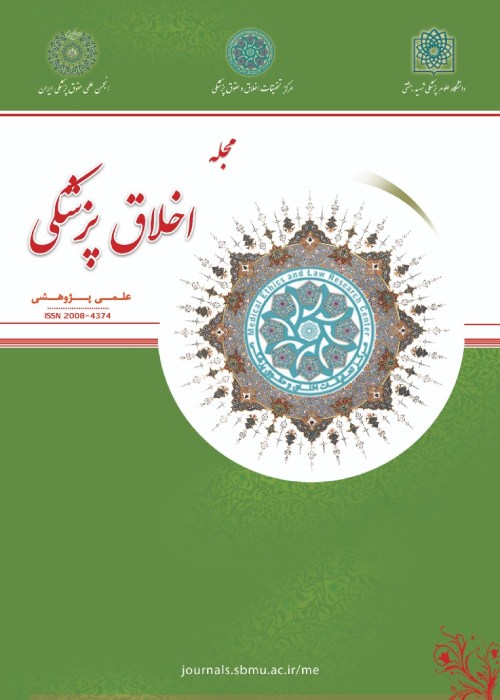The Comparison of Spiritual Well-Being, Tolerance of Ambiguity and Happiness in the Elderly Living in the Home and the Nursing Home
Increasing the population of elderly people in the country, along with a variety of physical and psychological problems on the one hand and on the other hand, social developments, such as changing personal and family lifestyles, increase the number of elderly care institutions. Therefore, the purpose of this study was to consider the importance of the impact of the living environment on various aspects of mental health, comparison of spiritual Well-Being, tolerance of ambiguity and happiness in the elderly living in the home and the nursing home.
The method of this research was a descriptive-causalcomparative study. The statistical population consisted of all elderly people in Shiraz in 2018. In this study, 60 elderly nursing homes and 60 elderly living at home were selected as the sample size. The elderly living in the nursing home were selected through convenience sampling and elderly living in the home were selected by the cluster sampling method. The measurement tools were the McLean tolerance of ambiguity type 2 Questionnaire, the Dehashiri et al. spiritual Well-Being Scale and the Oxford happiness Questionnaire. Data were collected using questionnaires using descriptive index and multivariate analysis of variance analysis in SPSS software 22.
The results of Pillai's Trace of multivariate analysis of variance showed that the effect of group on spiritual Well-Being, tolerance of ambiguity and happiness was significant (Partial Eta Square=0.875, P<0.001, F(3,116)=270.31). Also, the results of multivariate analysis of variance showed that the mean scores of spiritual Well-Being (F=304.29), tolerance of ambiguity (F=65.64) and happiness (F=405.31) were significantly lower in the elderly living in the nursing home than the elderly living in the home (P<0.001). Ethical Considerations: Before the study, the goal of the study was explained to participants to participate full satisfaction. Also written informed consent was obtained from participants.
The results of this study showed that spiritual Well-Being, tolerance of ambiguity and happiness in the elderly living in the nursing home is lower than the elderly living in the home. Therefore, family participation can be effective in providing welfare and mental Well-Being of the elderly, supporting officials with appropriate insurance coverage for the elderly, create a health care system at home and support for family caregivers to achieve a higher level of mental health in this group can be effective.
- حق عضویت دریافتی صرف حمایت از نشریات عضو و نگهداری، تکمیل و توسعه مگیران میشود.
- پرداخت حق اشتراک و دانلود مقالات اجازه بازنشر آن در سایر رسانههای چاپی و دیجیتال را به کاربر نمیدهد.




